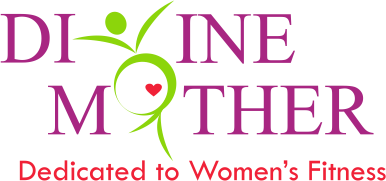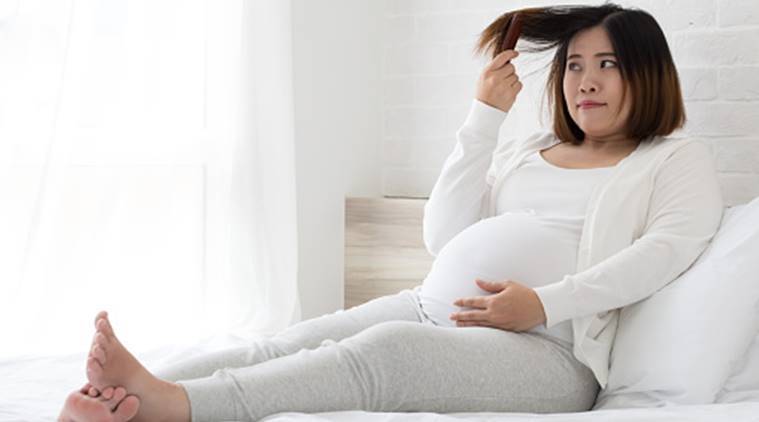
- January 12, 2022
- Comments: 0
- Posted by: Dr. Anushri Shah

Does pregnancy affect hair! Yes, it most likely will. And, if you’re pretty fortunate, it will be for the benefit. During pregnancy, hair transformations are a natural physiological occurrence. Your hair appears to grow faster, and it surely thickens.
It also gets smooth and shiny for many women, especially in their second trimester. Others may notice that it becomes rougher or stickier instead. Some women detect a discoloration, while others note a change in thickness – perhaps becoming frizzier or even transitioning from straight to wavy.
Some women undergo hair loss during pregnancy, observing their hair thinning or dropping out more often. This can start throughout pregnancy and persist after the baby is born. Hair loss in motherhood can be worrying, and while it is generally the consequence of changing hormones or the natural stressors of pregnancy, it can also be an indication of a more severe health issue.
As an outcome, mommy, ready yourselves for 9 months of finest or terrible hair times. But don’t worry, we know how to tackle bad hair days. Following important pregnancy diet & nutrition help to solve your problems.
The Most Common Hair Changes?
Some expectant moms realize that during their pregnancy care program hair is growing quicker than usual, so they call the salon right away! Others may notice during their pregnancy care program hair textural changes, such as hair that are frizzier, unexpectedly drier, greasier than they were before pregnancy.
Because of this, hormones, as well as improved blood flow and a cranked metabolism that provides more nutrition to your hair. That may begin growing in new areas like the face, belly, arms & more.
If you’re unhappy with your hair changes, there’s some excellent news: your hair will get back to normal within six-seven months after delivery before that you can go on a pregnancy diet and nutrition program during pregnancy care program.
What’s the Connection Between Hair & Pregnancy?
Despite the fact that your hair seems thicker, richer, and even unusual in texture, you are not actually developing additional hair. What’s occurring is that you’re not shedding as much hair as normal as a result of an increase in your hormonal levels, which is disrupting your hair-growth cycle.
Before you were pregnant, your hair went through a normal three-month cycle of growth, relaxing, and progressively losing. During any one moment, around 85 percent to 95 percent of your strands were growing, while the remaining 6 percent to 16% were in the relaxing stage. Which progressively leads to shedding, generally when you brushed or shampoo your hair.
Although, since you’re pregnant, your hormones are driving the repose period of that hair-growth cycle to stretch, which means you’re not losing nearly as much hair as usual – giving you the appearance of having a thicker head of hair.
What If Hair Gets Longer or Thicker?
Most of us wish for longer, thicker hair, and pregnancy appears to be a thick-hair imagination that turns out to be true. We loved it when our hair got thicker and more volumized.” However, as attractive as thick hair is, some people find it more difficult to manage than they anticipated.
Deal With It:
If you have too much hair, consider wrapping it into a glamorous topknot or a wavy ponytail. Another effective method for reducing fullness is to have your stylist thin your hair with progressive layers. This thins thicker hair all over your head, leveling it out and providing it simpler to handle.
What If Hair Gets Straightened or Curly?
This is a strange pregnancy change. Because of the elevated quantities of hormones in your pregnant body, the texture of your hair might radically alter. If you have sharper-straight hair, you may experience minor kinks or even full-fledged curls. If you have natural curls, you may notice that it straightens out.
Deal With It:
The correct way to handle this one is to accept the change: once you’ve recovered from the surprise, you could even appreciate having organically different hair, and it was just for 9 months!
If your generally straight hair gets wavy when pregnant, experiment with alternative styles. To truly make the most of those curls, add some non-heated hair rollers to your new bounce.
What If Hair Gets Rougher or Drier?
It’s not rare for your hair towards becoming dry, rough, and pencil-like during pregnancy. This might be because your developing body isn’t pushing your skin’s oil glands to create as much of an oily material known as sebum as it used to. Or it might simply be that the hair products you’re using are no longer appropriate for your changing pregnant hair.
Deal With It:
Indulge yourself to some end up leaving repairing creams and serums to give your hair extra time to analyze moisture.
Shampoo should be used sparingly since it eliminates natural oils from your hair. When shampooing, rub the shampoo into your scalp for a few minutes to activate your oil glands. Avoid using heated hair styling products, such as curling irons or straighteners, since they can cause breakage in already fragile hair.
What If Hair Gets Greasier or Oily
Some expectant mothers notice that the moisture content in their hair fluctuates fast, leaving it sticky, greasy, and difficult to maintain. Variations in your androgen levels can cause your skin’s sebaceous glands (small glands that reside beneath your skin) to grow, resulting in excess in an oily material known as sebum.
Deal With It:
It may sound counterintuitive, but oily hair can get even greasier if washed too frequently, since washing increases the circulation of sebum. Yet, there really are a few more options you might consider. Opt for shampoos that claim to ’emulsify’ the oils, and choose 2-in-1 hair care products over separate conditioners.
Last Verdict
Hair changes and hair loss are common aspects of pregnancy for many women, especially during the postnatal period. It generally resolves itself over time, generally within six months and a year. Even though there is an underlying disease, a health care professional can help you identify and cure the source of the problem.
Divine Mother’s pregnancy care program has it all from pregnancy diet and nutrition to pregnancy yoga to other prenatal & postpartum sessions & activities join us now. you can also read about: The Benefits of Yoga During Pregnancy


